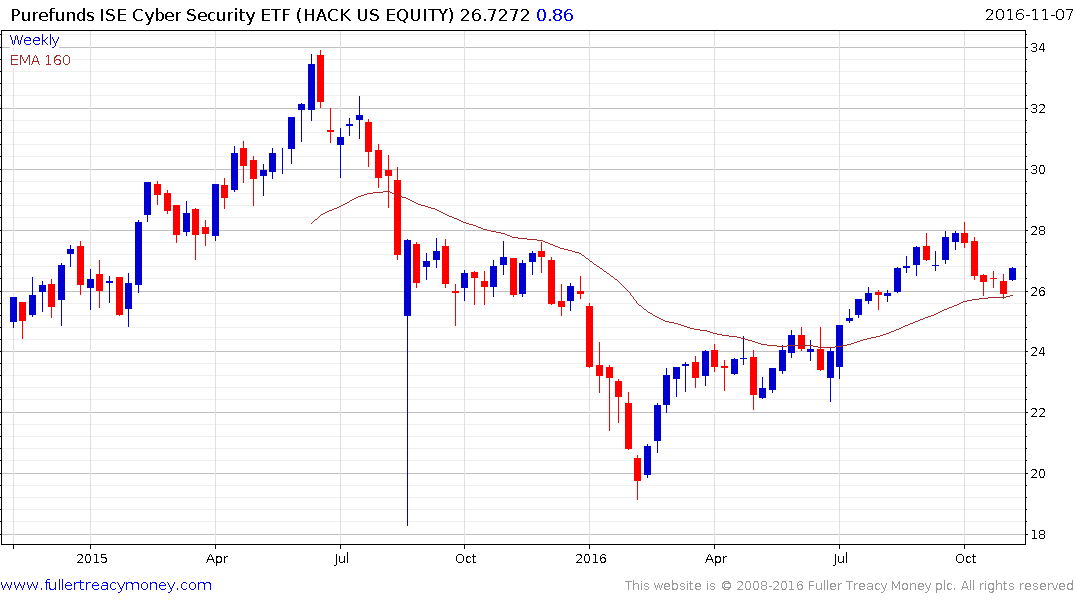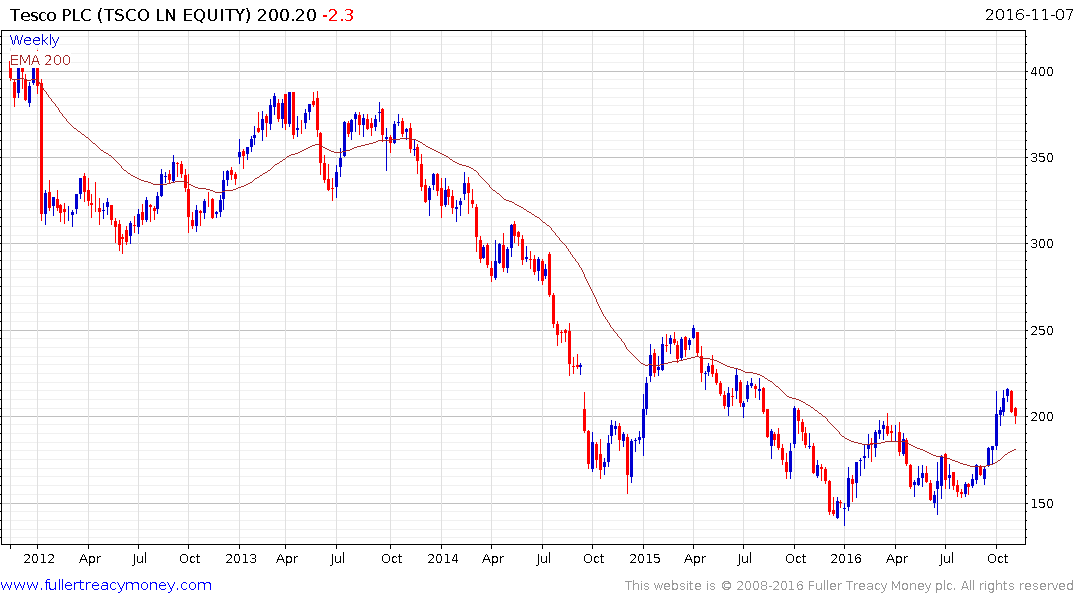Tesco Bank Halts Web Trades as Money Taken From 20,000 Accounts
This article by Paul Jarvis for Bloomberg may be of interest to subscribers. Here is a section:
About 40,000 of the bank’s 136,000 checking account holders experienced suspicious transactions over the weekend, Tesco Bank Chief Executive Officer Benny Higgins told BBC Radio 4’s Today program. About half of those had money taken from their account, he said. The problem has only affected checking accounts, a representative for the bank said.
Some of the world’s biggest financial institutions, including JPMorgan Chase & Co., HSBC Holdings Plc and the Federal Reserve Bank of New York, have all been cyberjacked in some way in the past couple of years. In the second quarter of this year, there was a 50 percent jump in activity by cybercriminals injecting malware programs into financial companies worldwide from the same period in 2015, according to Kaspersky Lab, a global cybersecurity company.
“Banking fraud is unfortunately very prevalent, and has been for a while,” said Tom Kirchmaier, researcher at the financial markets group at the London School of Economics. “The industry is not very forthcoming with sharing data with the police, and so we only hear about the worst cases, and Tesco’s can be considered one such instance.”
Inventory shrinkage (shoplifting) costs the retail sector about 1.5% of revenue per annum. When businesses move online they have to account for other kinds of theft such as when a buyer claims the item did not arrive and demands a refund. Online retailers often fear negative reviews so they put up with this petty theft as a matter of course and rarely talk about it.
We don’t generally tend to think of banks as being subject to shoplifting but that doesn’t mean they are not subject to other forms of shrinkage. I know that when I played Monopoly as a child the card everyone wanted more than any other was “bank error in your favour”. I always thought it was a myth but more recently I was part of a conversation where two separate people said they were beneficiaries of banking errors. Perhaps more importantly one of them, on returning to the counter was told to keep quiet because it was too much trouble to reverse it and the teller was afraid of getting in trouble.
Little wonder then that a lackadaisical culture exists within the banking sector about protecting the rights of consumers against online thefts when their business is insured. The reality is that banks are under constant attack from cyber criminals but quite apart from that identity theft is booming. So many large databases have been hacked and the passwords of many people have been compromised so that having a surname/birthdate password is a sure fire way to have your information stolen and potentially exploited.
The only way to get companies to have a more responsible attitude to protecting their databases is to increase the relative cost of a breach, whether reputationally, financially or both. Having laws that would require companies to report breaches would be a positive step forward.

The Purefund CyberSecurity ETF bounced today to confirm near-term support in the region of the trend mean following what has so far been an equal sized reaction.

Tesco rallied from September to break a medium-term progression of lower rally highs and some consolidation of that gain is now underway. A sustained move below the trend mean would be required to question medium-term scope for continued higher to lateral ranging.


